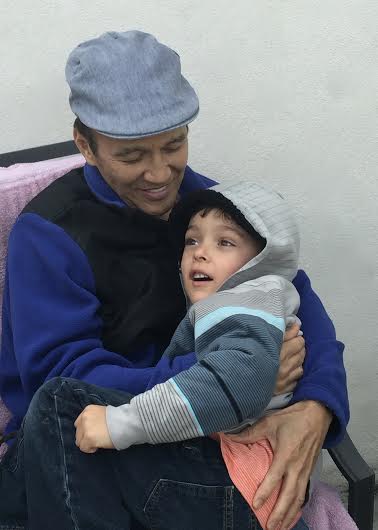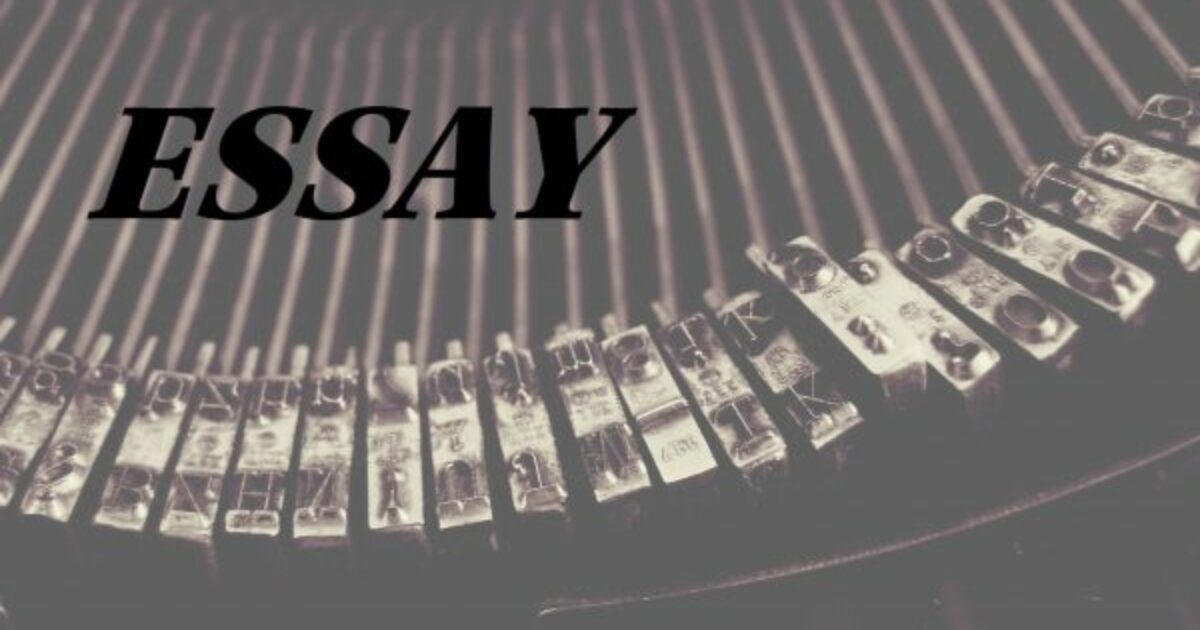Against the Grain
By S M Chen, posted June 19, 2017 “Love your enemy. It will not only puzzle him, but finally illumine him.” — Sri Chinmoy (1931-2007), Indian spiritual leader
“Returning hate for hate multiplies hate, adding deeper darkness to a night already devoid of stars. Darkness cannot drive out darkness; only light can do that. Hate cannot drive out hate; only love can do that.” — Martin Luther King, Jr. (1929-1968), American minister
Upon completion of postgraduate training, one of my fellow residents pursued private practice in another state.
As his children grew, they, rather naturally, wanted a pet. (For reason unknown to me) he was adamantly opposed. One told him, “Dad, if you knew you weren’t going to let us have a dog, why did you have us?”

I don’t know if he relented.
But his child’s reasoning has a certain logic.
***
I recently encountered a news item that caught my interest. A Palestinian family were involved in a head-on vehicle collision. The father was killed; the mother sustained serious head injuries.
You can learn more details here.
Their infant child survived, but would not take a bottle. What to do?
A Jewish pediatric nurse in Jerusalem, who was breastfeeding at the time, suckled the baby several times with success. When the time came to find others to assist, there was an outpouring of positive response from La Leche League.
I do not know if the Palestinian woman with head injuries will survive. I have little doubt that her child will. What does his future hold?
This is a heartwarming, life-affirming story. I have no doubt that, were circumstances reversed, some Palestinian woman might well have suckled a deprived Jewish baby.
Would the Jewish nurse do this if she knew the Palestinian baby might grow up to be a terrorist? Perhaps one responsible for the deaths of some of her people? Perhaps members of her own family? Such is possible.
And she has no way of knowing. Nevertheless, she followed her instinct of compassion, and the instincts of most of us would agree that her instinct was correct. It was the right thing to do.
Bad news abounds. A little good news is welcome.
***
We are made in such a way that our hearts are touched by acts of goodness, particularly those exhibited by people who have nothing to gain, and even more so when the acts may seem antithetical to self-interest.
Christ said: “Greater love hath no man than this, that a man lay down his life for his friends.”
While not denying the text’s verity, I venture to expand on it. I posit that the greatest love may be that shown by a person for his/her enemy.
In the parable of the Good Samaritan, a man likely saved the life of another who was not a natural friend. Au contraire.
We are not told what happened thereafter to the wounded Jew. I like to think that, after making recovery, he may have led a life full of purpose.
***

This is what happened to Jean Valjean, the fictional protagonist of Victor Hugo’s masterwork, Les Miserables. Imprisoned for 19 years for stealing a loaf of bread for his hungry sister’s family, upon release he rewarded a kindly bishop by stealing silver of value.
The bishop, rather than turning him in to the gendarmes (which he could have easily done, perhaps more easily than not), indicated that the stolen ware was a gift. Privately, he encouraged Valjean to become an honest man.
Greater than the gift of silver was the gift of freedom from prison the bishop gave Valjean, who ultimately did become an honest man and led an exemplary life.
***
When Elisha guided blinded Syrians to their enemy, the king of Israel asked: “Shall I kill them?” (II Kings 6) Elisha instead instructed to give the captive soldiers bread and water. They, tellingly, returned to their land and troubled Israel no more.
***
King David was a complex man.
He was responsible for some of the more heroic deeds recorded in Holy Writ. He also demonstrated nobility when he was in a position to harm King Saul, who sought to take his life on more than one occasion.
He participated in and witnessed some of the darker aspects of human nature—murder, adultery, incest—firsthand.
Yet he wrote 150 psalms. And the Almighty called him a man after His own heart.
From that heart could have come the command to kill the prophet Nathan, who had the temerity to point a finger at the king after reciting a parable and say, “Thou art the man!”
It was risky business being the bearer of bad tidings. “Don’t shoot/kill the messenger” was mentioned as early as 442 BC by Greek playwright Sophocles.
Even bearers of good news were at risk. Legendary Greek runner Pheidippides purportedly legged 26 miles to Athens in late summer heat with news of victory over the Persians at Marathon. He blurted out, “We conquer!” then collapsed from exhaustion and perished.
David did not kill Nathan, as some in position of authority might have. Instead, he acknowledged his transgressions and repented.
***
American poet e e cummings (1894-1962) wrote:
“here is the deepest secret nobody knows…
which grows higher than soul can hope or mind can hide
and this is the wonder that’s keeping the stars apart
i carry your heart (i carry it in my heart)”
In different context, I think this is what the Almighty may have meant when He said David was a man after His own heart.
Each held the other’s heart in his own.
***
To love one’s enemies seems to go against the grain. Hating enemies, and acting accordingly, seems logical, natural, and defensible.
Were that the modus operandi of the Almighty, heaven would be devoid of humanity, or largely so, if we accept the veracity of Romans 3:23.
***
The Almighty must have known when He created man that most would choose a path of darkness rather than light. Man would come to know evil, but that knowledge would bring not enlightenment, but heartache and doom.
In His omniscience, He could also foresee that the Incarnation would not speak to the majority of humanity, who would choose the broad boulevard to perdition rather than the narrow path to life. And, with not a little irony, the chosen ones would be those who instigated the crucifixion of the One who had come to save them.
And not only them. As surely as He came for others, He came for Judas. And Hitler. And Stalin. And Idi Amin. And Pol Pot. And the impenitent thief on Golgotha.
The nonacceptance of many did not negate the gift of One designed to save all.
***
As we contemplate the ramifications of Ephesians 2:8, it is appropriate that we react with humility and gratitude and extend the same love to our siblings (for if God be our Father, are not all humanity His children?) that has been extended to us.
To enemies as well as friends.
________________________________________
 S M Chen lives and works in California.
S M Chen lives and works in California.




